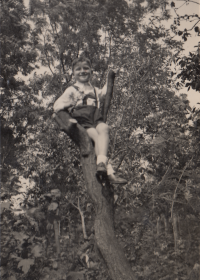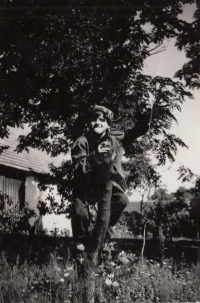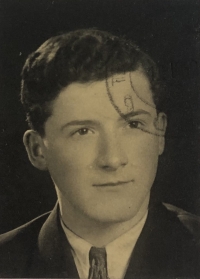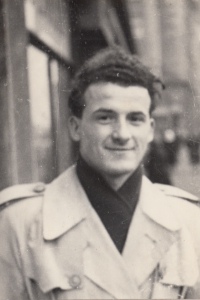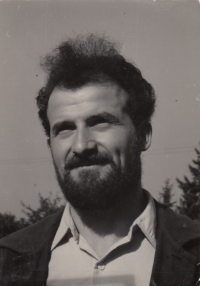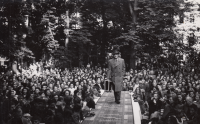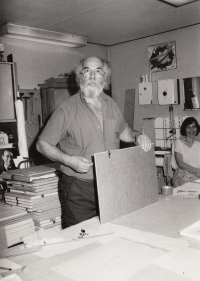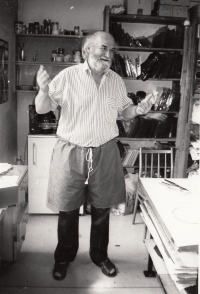Everyone is valuable in some way, just by being alive and doing something

Stáhnout obrázek
Jan Michálek was born on 18 April 1935 in Jihlava to his mother Pavlína, née Odrážková, and father Jan. He spent his childhood with his three siblings during the Second World War in his hometown and holidays with relatives in Měnín near Brno. His father worked as an electrician during the war for the city‘s electrical works, in the theatre and in gasworks, while his mother was a housewife. After finishing school, Jan Michálek enrolled in a mining apprenticeship, after a year he switched to glass painting in Nový Bor and then to arranging in Teplice. He completed his military service with the Border Guard in northern Bohemia, married and in 1963 left Jihlava for the Prague-based Commercial Advertising (Reklama obchodu), later Merkur. There he had the opportunity to prepare exhibitions abroad, but the pressure of normalisation forced him to leave. In 1972 he landed for 35 years at the National Museum, where he became head of the exhibition department and realized 147 exhibitions. In addition to his museum work, Jan Michálek devoted his lifetime to free photographic work inspired by poetry and nature. After the Velvet Revolution, when he became involved in the Civic Forum, he continued his work until 2007. In 2023, Jan Michálek was living in Jihlava again.
